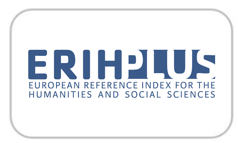სტუდენტების დამოკიდებულებისა და სტიგმის როლის შესწავლა ფსიქიკური ჯანმრთელობის სერვისების მიღებასთან დაკავშირებით
DOI:
https://doi.org/10.52340/healthecosoc.2024.08.01.02საკვანძო სიტყვები:
სტიგმა, ფსიქოლოგიური სერვისები, ფსიქიკური ჯანმრთელობაანოტაცია
შესავალი: მენტალურ ჯანმრთელობასთან დაკავშირებული პრობლემები დღეს მსოფლიოში ძალიან გავრცელებულია. ფსიქიკური ჯანმრთელობის სერვისებზე წვდომა მნიშვნელოვანია იმისთვის, რომ ადამიანებმა დაძლიონ ფსიქიკური პრობლემები, თუმცა, ხშირად ისინი უარს ამბობენ ან ვერ იღებენ პროფესიონალური დახმარებას. ერთ-ერთი მთავარი ფაქტორი, რაც ადამიანს აკავებს პროფესიონალური დახმარების მიღებისგან არის საზოგადოებაში დამკვიდრებული სტიგმა. სოციალური სტიგმა გულისხმობს საზოგადოების მხრიდან ნეგატიურ დამოკიდებულებას იმ ადამიანების მიმართ, რომელთაც ფსიქიკურ ჯანმრთელობასთან დაკავშირებული პრობლემები აქვთ. კვლევის მიზანია შეისწავლოს საქართველოში სტუდენტების დამოკიდებულება და სტიგმის როლი ფსიქიკური ჯანმრთელობის სერვისების მიღებასთან დაკავშირებით. მეთოდოლოგია: კვლევაში გამოყენებულია თვისებრივი კვლევის მეთოდები. ჩატარდა სიღრმისეული ინტერვიუები კავკასიის უნივერსიტეტის სტუდენტებთან. შედეგები: ფსიქიკური ჯანმრთელობა სტუდენტებისათვის დიდ მნიშვნელობას ატარებს, მათ აქვს ზოგადი წარმოდგენა ფსიქიკური ჯანმრთელობის შესახებ. თუმცა, სტუდენტებს არ აქვთ საჭირო ინფორმაცია ფსიქიკური ჯანმრთელობის სერვისების შესახებ. სტუდენტებს მიაჩნიათ, რომ ფსიქიკური ჯანმრთელობის სერვისების მიღება მნიშვნელოვანია, მაგრამ ხშირად ეს შეუძლებელი ხდება სხვადასხვა ბარიერებიდან გამომდინარე. სტუდენტებში ფსიქიკური ჯანმრთელობის სერვისი მიღების უმთავრესი ბარიერებია საზოგადოებაში დამკვიდრებული სტიგმა, თვითსტიგმა და სერვისების სიძვირე. სტუდენტებს მიაჩნიათ, რომ სტიგმა ფსიქიკურ ჯანმრთელობასთან დაკავშირებით მათ თაობაში შედარებით ნაკლებად არის გამოხატული, ვიდრე უფროს თაობაში.
წყაროები
ხეჩუაშვილი, ლ. (2013). პიროვნება - შესავალი პიროვნების ფსიქოლოგიაში. თბილისი
UNICEF. (2023). უნივერსიტეტის სტუდენტებს შორის ფსიქიკური ჯანმრთელობისა და სერვისებზე ხელმისაწვდომობის კვლევა. თბილისი: UNICEF.
APA. (n.d.). APA Dictionary of Psychology. Retrieved from dictionary.apa.org: https://dictionary.apa.org/mental-health-services
Bryant, J., & Welding, L. (2023, February 15). College Student Mental Health Statistics. Retrieved from bestcolleges.com: https://www.bestcolleges.com/research/college-student-mental-health-statistics/#how-many-college-students-experience-mental-health-conditions
Catalano, Brown, Lucksted, Hack, & Drapalski. (2021). Support for the social-cognitive model of internalized stigma in serious mental illness,. https://www.sciencedirect.com/science/article/pii/S0022395621000819.
CDC. (2023, აპრილი 25). mental health. Retrieved from cdc.gov: https://www.cdc.gov/mentalhealth/learn/index.htm
CSS. (2016). Socia-cognitive Learning Theory. Retrieved from dictionary.css: http://dictionary.css.ge/content/socia-cognitive-learning-theory
Darice Warren. (2023). The State of Mental Health in America 2023: Adult Prevalence and Access to Care. Retrieved from nssbehavioralhealth.com: https://www.nssbehavioralhealth.com/nss-blog-the-state-of-mental-health-in-america-2023-adult-prevalence-and-access-to-care/
Goffman, E. (2022). Stigma - Notes on the managment of spoiled identity. Penguin Classics.
Hobson. (2008). THE EFFECTS OF MENTAL HEALTH EDUCATION ON REDUCING STIGMA AND INCREASING POSITIVE ATTITUDES TOWARD SEEKING THERAPY. Humboldt State University.
Katz, J. M. (2023). Challenge case on mental health. Universitu of Pittsburgh.
Ochnik, D., Rogowska, A., & Kuśnierz, C. (2021). Mental health prevalence and predictors among university students in nine countries during the COVID-19 pandemic: a cross-national study. Nature.com.
Pfeiffer. (2022). Barriers to Seeking Psychotherapy for Mental Health Problems in Adolescents: a mixed method study. https://doi.org/10.1007/s10826-022-02364-4.
Rebecca Long, Marley Hall. (2023, თებერვალი 15). College Student Mental Health Statistics. Retrieved from bestcolleges.com: https://www.bestcolleges.com/research/college-student-mental-health-statistics/#how-many-college-students-experience-mental-health-conditions
TNC. (n.d.). Study Reveals Lack of Access as Root Cause for Mental Health Crisis in America. Retrieved from thenationalcouncil.org: https://www.thenationalcouncil.org/news/lack-of-access-root-cause-mental-health-crisis-in-america/
Warren, D. (2023). The State of Mental Health in America 2023: Adult Prevalence and Access to Care. Retrieved from nssbehavioralhealth.com/: https://www.nssbehavioralhealth.com/nss-blog-the-state-of-mental-health-in-america-2023-adult-prevalence-and-access-to-care/
WHO. (2022, ივნისი 17). Retrieved from WHO.int: https://www.who.int/news-room/fact-sheets/detail/mental-health-strengthening-our-response














